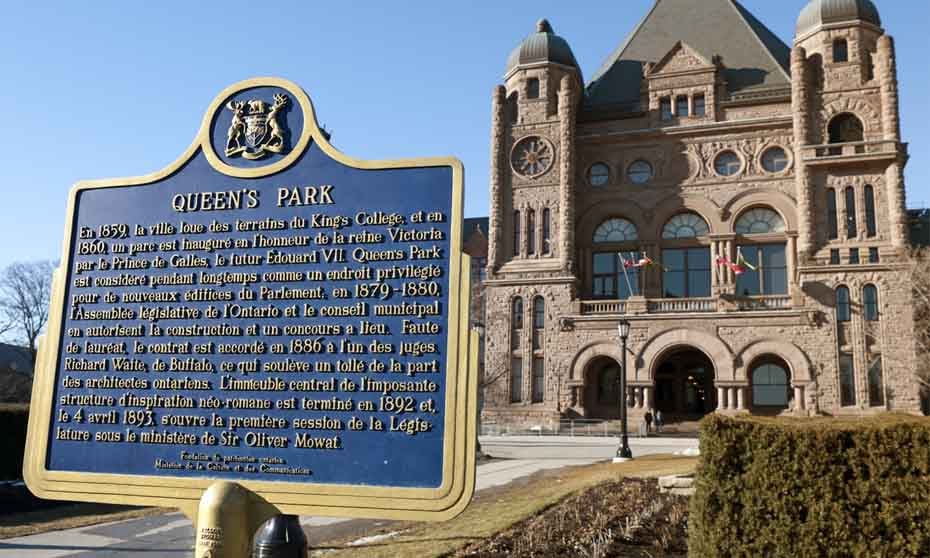
Benchers to consider scope of regulated agents in summary conviction matters at Sept. 11 meeting

Benchers at the Law Society of Ontario will consider on Sept. 11 a plan to allow law students, articling students and paralegals to work on summary conviction matters, says Treasurer Malcolm Mercer.
The law society’s Convocation meeting is just days before the Sept. 19 enforcement of changes to the criminal code, the Youth Criminal Justice Act, and other law enforcement-related amendments in Bill C-75, which received royal assent from the Parliament of Canada on June 21. That bill makes changes to summary conviction matters, including raising the default maximum imprisonment to two years less a day.
In a brief published last year, the LSO said this increase in the maximum penalty from summary conviction means that the accused cannot use so-called regulated agents — such as paralegals, lawyer licensing candidates and law students — to represent them in court on “routine aspects” of these matters.

Malcolm Mercer
“If the law society doesn’t allow law students, articling students and paralegals approximately the same scope of practice, that would be a loss of service and therefore loss of access to justice. What we seek to do by proposing [this] approach to Convocation is to maintain access to justice as it existed,” says Mercer.
Bill C-75 still passed, despite the law society’s concerns, but Ontario Attorney General Doug Downey announced on Aug. 16 that the Ministry of the Attorney General would “designate authority to the Law Society to determine who has the ability to appear in summary conviction court as a regulated agent.”
Downey’s office cited “concerns expressed by Ontario's legal community,” including affordability of legal services and professional experience for law students and licensing candidates.
“The stated intentions of Bill C-75 are to keep Canadians safe, and not to inadvertently prevent paralegals, lawyer licensing candidates and law students from continuing to provide legal representation as they do now,” Downey said in the official announcement.
Mercer says the LSO is “quite pleased” that the provincial government recognized the law society as the appropriate regulator. A previously proposed solution was to permit regulated agents to appear on summary conviction matters through an order-in-council. But the LSO warned last year that an order-in-council could shift the regulation of issues such as paralegal scope from the LSO to the provincial government.
Mercer says that the Sept. 11 proposal before the Convocation board meeting will be a close approximation of how regulated agents were regulated in summary conviction matters prior to the enactment of the federal government’s reforms. The proposal presented to benchers will likely take the offences — which before Bill C-75 had a maximum six-month penalty — and allow law students, articling students and paralegals to represent clients for those offences.
However, Mercer noted that the group of benchers considering the Sept. 11 proposal will not be the same group that previously debated these issues and compiled the Government and Public Affairs Committee brief on the topic last fall. If something is not approved by Convocation before Sept. 19, law students, paralegals and licensing candidates may lose the opportunities to appear in court on summary conviction matters, at least for now.
“Our preference would be to leave things as they were from the point of view from students and paralegals who were doing summary conviction work,” says Mercer. “When two-thirds of benchers haven’t been in Convocation before, it’s difficult to know how people will react. I’m hopeful that Convocation will see the wisdom of — as best as we can — maintaining the status quo.”
Some parties have raised questions about the role of paralegals in criminal law.
In 2018, the Criminal Lawyers’ Association said that should Bill C-75 pass, “we suggest considering mechanisms which would allow agents to continue to represent accused individuals on minor charges.” But at the end of May, the Criminal Lawyers’ Association also said in a separate report that the LSO’s access-to-justice efforts should target expanding legal aid availability, rather than focusing on widening the scope of paralegals in criminal law.
“[F]ew paralegals are regularly practicing criminal law in the areas that they are currently permitted to do so,” the CLA wrote in a report. “They do not offer competent legal services at a more affordable price than lawyers and articling students. Additionally, paralegals have neither the constitutional status nor the necessary education and training to expand their services into a complicated and challenging area of the law.”
The Ontario Paralegal Association also stated its position last year on Bill C-75, noting its passage could alter the ability to represent individuals on summary conviction offences where the maximum penalty does not exceed six months' imprisonment or a $5,000 fine.
Without intervention from the LSO, the changes in Bill C-75 “will have a detrimental effect on an accused’s access to justice as it will limit their access to affordable representation,” said the OPA.